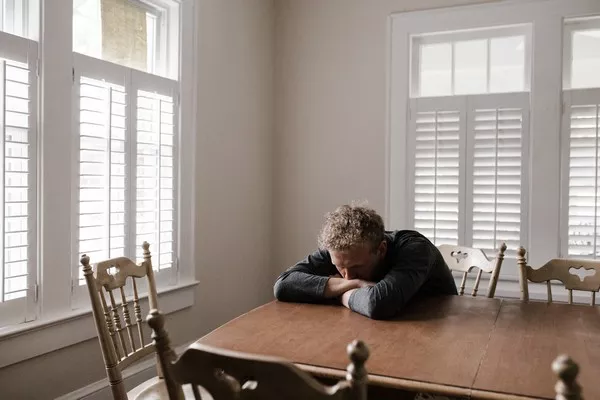As the population ages, understanding and addressing mental health concerns among the elderly becomes increasingly vital. One prevalent issue that deserves attention is depression, which stands as one of the most common mental illnesses affecting older adults. This comprehensive article aims to shed light on the intricacies of depression among the elderly, including its prevalence, causes, symptoms, risk factors, and effective management strategies.
SEE ALSO: Major Depression: 8 Complex Causes & Treatments
The Silent Epidemic: Depression Among the Elderly
Depression, a term often associated with feelings of sadness, is a complex mental health condition that can manifest differently among older adults. It’s important to note that occasional feelings of sadness are normal, but when these emotions persist and interfere with daily life, they may indicate depression.
Prevalence and Challenges of Depression in the Elderly
Depression is a significant concern among older adults, yet it often goes unrecognized and untreated. Prevalence rates of depression vary among seniors, with estimates ranging from 7% to 15%. However, it’s important to understand that these statistics might be underreported due to factors like stigma, lack of awareness, and the misconception that depression is a natural part of aging.
Factors Contributing to Depression in Seniors
Several factors can contribute to the development of depression in older adults:
1. Physical Health Conditions
Chronic illnesses, pain, and disability can increase the risk of depression. The link between physical and mental health is especially pronounced in the elderly.
2. Social Isolation
Loneliness and social isolation are prevalent issues among seniors, particularly those who have lost loved ones or have limited social connections.
3. Loss and Grief
The loss of friends, family members, or a spouse can trigger feelings of grief and contribute to depressive symptoms.
4. Cognitive Decline
Cognitive changes and the fear of developing dementia can lead to distress and depression.
5. Life Transitions
Major life changes, such as retirement, relocation, or changes in living arrangements, can be emotionally challenging and contribute to depression.
Identifying Depression in the Elderly
Recognizing depression in seniors can be challenging due to overlapping symptoms with other medical conditions and the mistaken belief that depression is a normal part of aging. Common symptoms of depression in the elderly include:
- Persistent sadness or hopelessness
- Loss of interest or pleasure in previously enjoyed activities
- Changes in appetite and weight
- Sleep disturbances
- Fatigue and lack of energy
- Difficulty concentrating or making decisions
- Feelings of worthlessness or excessive guilt
- Thoughts of death or suicide
Risk Factors and Vulnerable Populations of Depression in the Elderly
Depression among the elderly is a multifaceted issue influenced by various risk factors and vulnerabilities that can significantly impact mental health and well-being. Recognizing these risk factors and understanding which populations are more susceptible to depression is essential for early identification, intervention, and support. Here, we delve deeper into the complex interplay of risk factors and vulnerable populations contributing to depression in seniors.
1. Gender Disparities
Research consistently shows that women are more likely to experience depression than men, and this gender difference persists in older age groups. There are several factors that contribute to this elevated risk:
Hormonal Changes: Hormonal shifts during menopause and postmenopause can contribute to mood changes and increase the risk of depression.
Social Factors: Women often take on caregiving roles for their families, which can lead to increased stress and emotional burden.
Sociocultural Influences: Societal expectations and cultural norms can influence how women perceive and express their emotions, affecting their mental health.
2. Social Isolation and Loneliness
Social isolation and loneliness are major risk factors for depression among seniors. Older adults may face various circumstances that contribute to isolation:
Loss of Loved Ones: The death of friends, family members, or a spouse can lead to increased isolation, especially if these individuals were important sources of social support.
Retirement: Leaving the workplace can lead to a reduced social network, especially if work was a primary source of interaction.
Mobility Issues: Physical limitations or mobility challenges can make it difficult for seniors to participate in social activities and maintain connections.
Lack of Transportation: Limited access to transportation can hinder seniors from engaging in community events or visiting loved ones.
3. Medical Conditions and Chronic Illnesses
The presence of chronic medical conditions can contribute to the development or exacerbation of depression in the elderly:
Pain and Discomfort: Chronic pain, often associated with conditions like arthritis, can lead to emotional distress and increase the risk of depression.
Functional Impairment: Conditions affecting mobility, vision, or hearing can impact a senior’s ability to engage in social activities, leading to isolation and depressive symptoms.
Cognitive Decline: The fear of cognitive decline or dementia can lead to anxiety and depressive symptoms, particularly in those with a family history of cognitive disorders.
4. Loss and Life Transitions
Major life transitions and significant losses can trigger or exacerbate depression among seniors:
Spousal Loss: The death of a spouse, especially after many years of companionship, can lead to profound feelings of grief and loneliness.
Retirement: While retirement can bring newfound freedom, it can also result in a loss of identity, routine, and social interactions.
Changes in Living Arrangements: Moving to assisted living or nursing homes can be emotionally challenging and contribute to feelings of isolation.
Financial Concerns: Financial difficulties, especially when combined with other stressors, can contribute to depressive symptoms.
5. Previous Depressive Episodes
Seniors who have experienced depression earlier in life are more susceptible to developing depression later on:
Recurrent Episodes: Individuals with a history of depressive episodes may be at higher risk of experiencing future episodes, especially during times of increased stress.
Coping Patterns: Previous coping mechanisms and emotional responses can influence how older adults manage new stressors and challenges.
Effective Strategies for Managing Depression in Seniors
Depression among the elderly demands a thoughtful and multifaceted approach to management. With the right strategies and support, seniors can experience improved mental health and a higher quality of life. Here are some practical and effective strategies for managing depression in seniors, empowering them to overcome challenges and rediscover their sense of well-being.
1. Professional Help
Engaging with mental health professionals is a fundamental step in managing depression among seniors:
Psychiatric Evaluation: A comprehensive assessment by a psychiatrist or psychologist can lead to an accurate diagnosis and inform appropriate treatment.
Therapeutic Interventions: Psychotherapy, such as cognitive-behavioral therapy (CBT) or interpersonal therapy, provides seniors with effective tools to manage depressive symptoms, cope with stress, and improve communication skills.
Medication: For some seniors, medication prescribed by a healthcare provider can alleviate depressive symptoms. Antidepressants should be carefully chosen based on individual needs and potential interactions with other medications.
SEE ALSO: 4 Major Types of Psychological Therapies: Cornerstones of Psychological Healing
2. Creating Supportive Environments: Social Connection and Engagement
Encouraging seniors to maintain and develop social connections is essential:
Family and Friends: Encourage visits and interactions with loved ones, as these relationships provide emotional support and a sense of belonging.
Community Involvement: Participating in clubs, groups, or local events fosters a sense of community and helps combat social isolation.
3. Physical Activity
Regular physical activity has been shown to have a positive impact on mental health:
Exercise Routine: Seniors can engage in activities such as walking, swimming, or gentle yoga. Regular exercise releases endorphins, which can improve mood and reduce symptoms of depression.
Group Activities: Joining exercise classes or group activities promotes social interaction while encouraging physical fitness.
SEE ALSO: 8 Amazing Benefits of Exercise to Mental Health, According to Studies
4. Healthy Lifestyle Habits
A balanced and health-conscious lifestyle plays a significant role in managing depression:
Nutrition: Encourage a well-balanced diet rich in fruits, vegetables, lean proteins, and whole grains. Nutrient deficiencies can contribute to depressive symptoms.
SEE ALSO: 5 Nutritions in Food for Alleviating Anxiety and Depression (Plus Mediterranean Diet)
Sleep Hygiene: Establishing a consistent sleep routine and creating a comfortable sleep environment supports healthy sleep patterns, which are essential for mental well-being.
5. Cognitive Stimulation
Engaging in activities that challenge the mind can be beneficial:
Mindfulness and Meditation: Practices that focus on mindfulness and relaxation techniques can help manage stress and improve mental clarity.
Hobbies and Interests: Pursuing hobbies and interests that bring joy can provide a sense of purpose and accomplishment.
6. Medication Management
For seniors who require medication, diligent medication management is crucial:
Regular Check-Ins: Schedule regular appointments with healthcare providers to monitor medication effectiveness and address any side effects.
Adherence: Encourage seniors to take their prescribed medication consistently and communicate any concerns with their healthcare team.
7. Educating Caregivers and Families
Families and caregivers play a critical role in supporting seniors with depression:
Understanding the Condition: Educating caregivers about depression helps them recognize symptoms and provide empathetic support.
Encouraging Treatment: Caregivers can provide encouragement for attending therapy sessions, taking medication, and engaging in healthy activities.
SEE ALSO: Obtaining Help for Someone with Mental Health Issues: A Guide for Support
8. Holistic Approaches
Each senior’s journey with depression is unique. A holistic approach takes into account their preferences, values, and personal history:
Complementary Therapies: Consider complementary approaches like art therapy, music therapy, or pet therapy, based on individual preferences.
Open Communication: Encourage open and honest conversations about feelings, experiences, and concerns. Active listening and empathy can provide emotional relief.
Conclusion
Depression among the elderly is a pressing mental health concern that requires attention, awareness, and intervention. By understanding the prevalence, causes, symptoms, risk factors, and management strategies associated with depression in seniors, we can collectively work towards better mental health outcomes for older adults. Empowering seniors, their families, caregivers, and healthcare professionals with knowledge and resources is essential to ensure that no one faces the challenges of depression alone.
[inline_related_posts title=”Related Topics” title_align=”left” style=”list” number=”3″ align=”none” ids=”1936,1931,1878″ by=”categories” orderby=”rand” order=”DESC” hide_thumb=”no” thumb_right=”no” views=”no” date=”yes” grid_columns=”1″ post_type=”” tax=””]



































